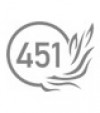Synopsis
- By the ton, polished aluminium sheets are exported to Peru, Brasil, Vietnam or Ethiopia. Detailed construction drawings are created on the computer. User and construction manuals in English, French, Spanish, Portuguese and Russian are released into the world via fax. By now there are workshops and branches in over sixty countries.
This “international corporation” is kept alive by a handful of teachers and students from a trade school in Altötting, Upper Bavaria. The product, which is eagerly being developed and sent into the world, is a durable, easily assembled, but extremely efficient solar cooker. However, the actual “made in Germany” export is not the priority, but rather the exchange of ideas, which leads to the establishment of local workshops all over the world. This sales strategy proves to stand in stark contrast to the state’s development aid policy.
Nikolaus Himmelstoss is both the initiator and the relentless driving force behind this solar plexus*. With his charming wit and sense of humour, he manages to outsmart ministers for culture and development aid agencies, and keeps his motivated students interested. On several voyages, the teenagers come to realize that four decades of so called development aid have not lead to more prosperity, but to an increasing impoverishment and accumulation of debt in “underdeveloped” countries.
Hence, the young people prefer to keep to the wise saying: “Give a man a fish, and you feed him for a day; teach a man to fish, and you feed him for a lifetime.”
*Solar plexus = a complex of ganglia and radiating nerves of the sympathetic system at the pit of the stomach
Crew
- Director: Bertram Verhaag
- Director of photography: Hauschild, Waldemar
- Editor (Cut): Spevak, Frantisek
- Commissioning Editor: Frühwirth, Jo
- Sound: Ravasz, Zoltan
- coproduced by: DENKmal-Film Verhaag GmbH
- Distributed by: DENKmal-Film Verhaag GmbH


















